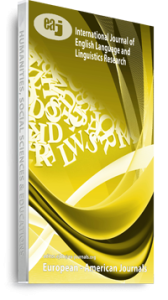It has been claimed that reflective talk can provide more opportunities for engaging learners in language learning (Lin and Mackay, 2005; authour2). Nevertheless, the topic of effective teaching practices used for infusing reflection into Task-Based Language Teaching (TBLT) classroom has been overlooked in the literature. This study examines the extent to which EFL teachers’ practices can engage learners into reflection. The study adapted two thinking skills tasks: reading image and diamond ranking tasks. The data of this study includes 10 hours of classroom interaction in a speaking class, with participants consisting of freshmen university students studying at a Saudi University and their British teacher. Using Conversation Analysis (CA) methodology, the study highlights some of the teacher practices that increased or hindered reflection. Also, the teacher’s effective questioning practices have led to the emergence of four types of reflection: reflection on task outcome, reflection on reflection, reflection on one’s personal experience and reflection on personal preferences. Therefore, this study suggests a guiding framework for language teachers that demonstrates the 3 dimensions of reflections in relation to interactional space: task lay out, task outcomes and task analogy.
Keywords: Conversation Analysis, EFL classroom, Reflection, Task-Based Teaching, teacher practices, thinking skills tasks

